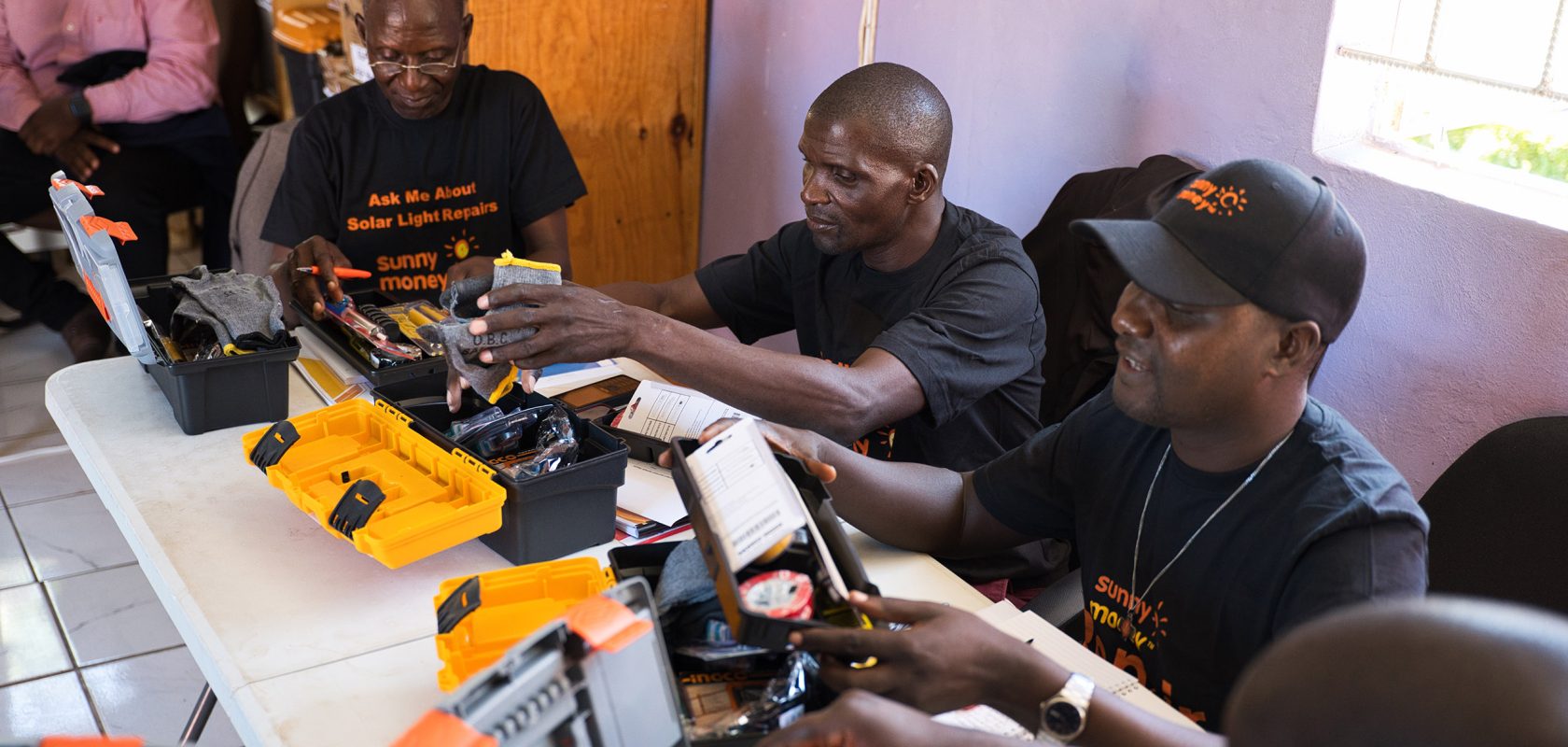Eight Solar Entrepreneurs from rural Zambia visited Lusaka in April to participate in SolarAid’s three-day solar light repair training. This training marks a significant step towards addressing two crucial challenges: improving access to sustainable lighting and reducing electronic waste in underserved communities.
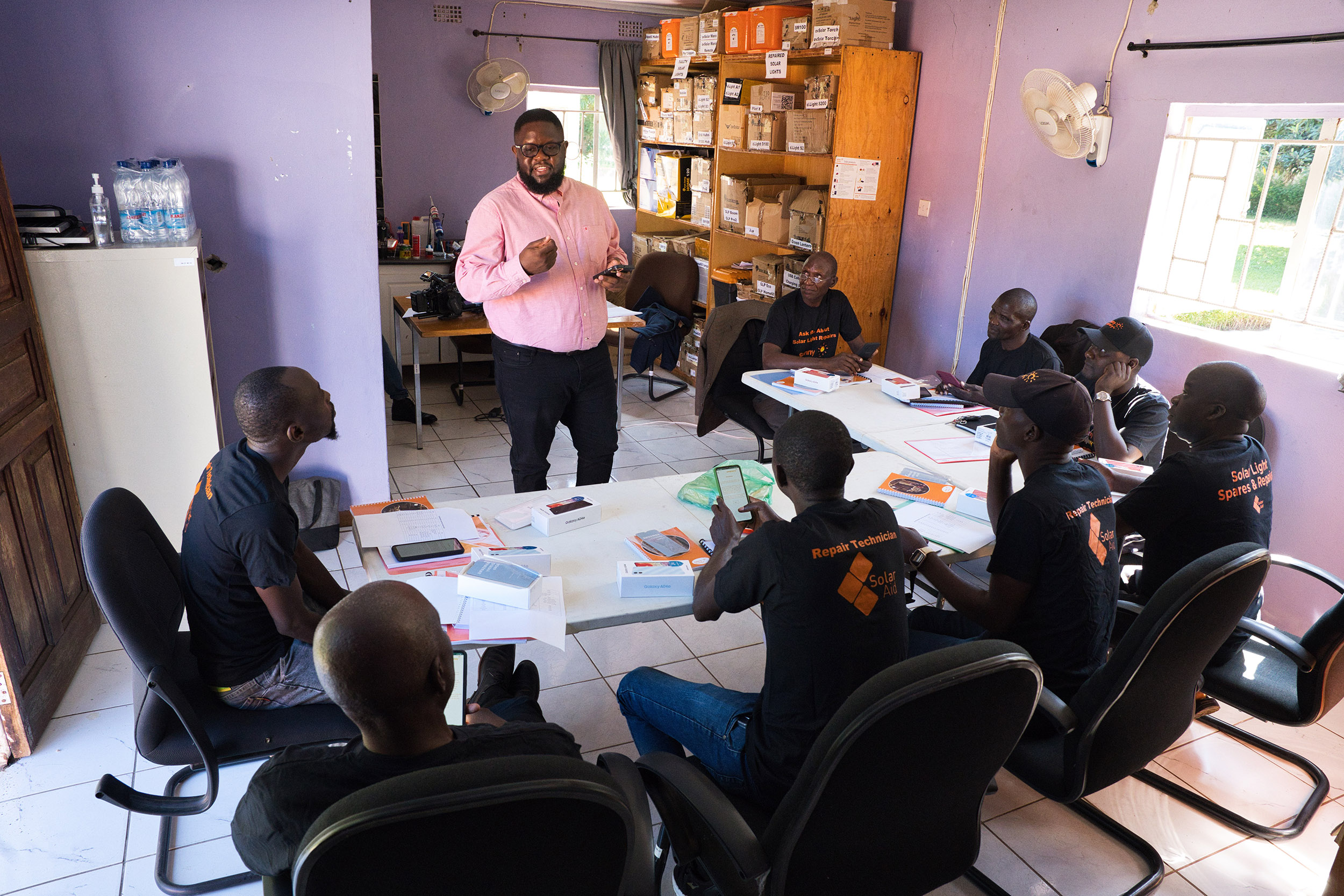
SolarAid Zambia Programmes Manager Fred Mwale introducing the Repair App to trainees. Photo: SolarAid/Jason Mulikita
The primary goal of the training was to equip these entrepreneurs with the essential skills to diagnose and repair solar lights. By becoming the first point of contact for customers seeking repairs, these entrepreneurs will not only create a new income stream but also offer a critical service that ensures the longevity of solar products—often the only reliable energy source in remote areas. This local approach reduces dependence on centralized repair services and helps expand the reach of solar energy solutions across rural Zambia.
The training kicked off with an introduction to the importance of solar light repair, which goes beyond just fixing faulty devices. SolarAid’s Programmes Manager, Fred Mwale, provided an overview of the SunnyMoney Repair App—a practical guide to solar light repair that provides the entrepreneurs with knowledge at their fingertips. Participants were also guided through the installation of the app on their new smartphones, provided as part of the training to support their work in the field.
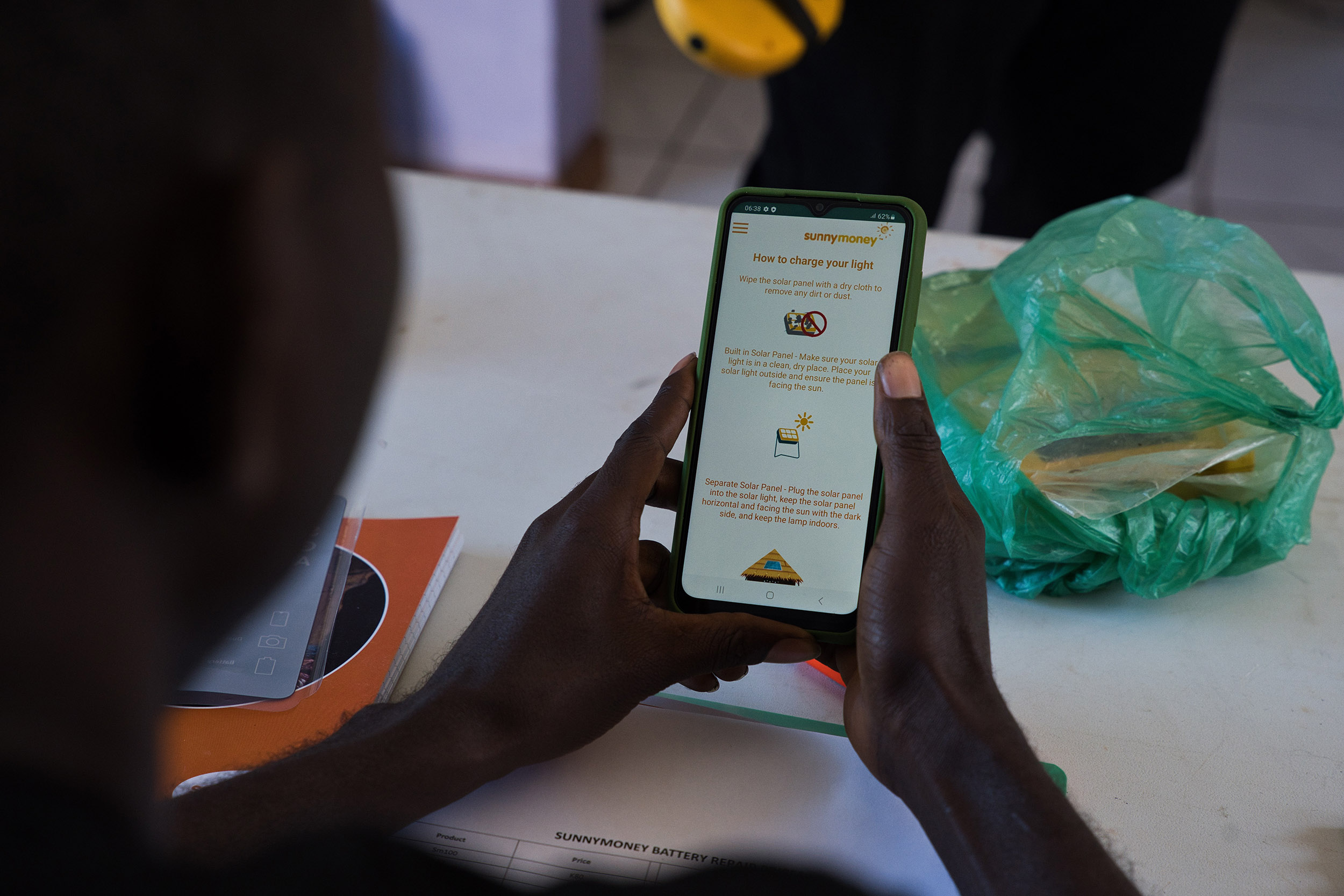
Demonstration of the repair App during the solar repair training for Solar Entrepreneurs in Lusaka, Zambia. Photo: SolarAid/Jason Mulikita
After this theoretical foundation, the training moved into hands-on sessions. Silas Lyowa, SolarAid’s Technician at the time, led participants through the step-by-step process of diagnosing and repairing various solar light issues. From replacing batteries to troubleshooting more complex faults, the training offered a comprehensive overview of solar light repair techniques.
At the heart of this initiative lies a dual-purpose mission: not only does it provide solar entrepreneurs with a new avenue for income generation, but it also champions the cause of sustainability by addressing solar electronic -waste. By breathing new life into non-functional solar lights, these entrepreneurs will play a pivotal role in extending the lifespan of these vital energy solutions.
This training also feeds into the global drive to reduce electronic waste, which is growing at an alarming rate, especially in countries without sufficient recycling infrastructure. By enabling local entrepreneurs to repair solar products, SolarAid is addressing this issue head-on—extending the lifespan of solar lights and ensuring that fewer devices end up in landfills.
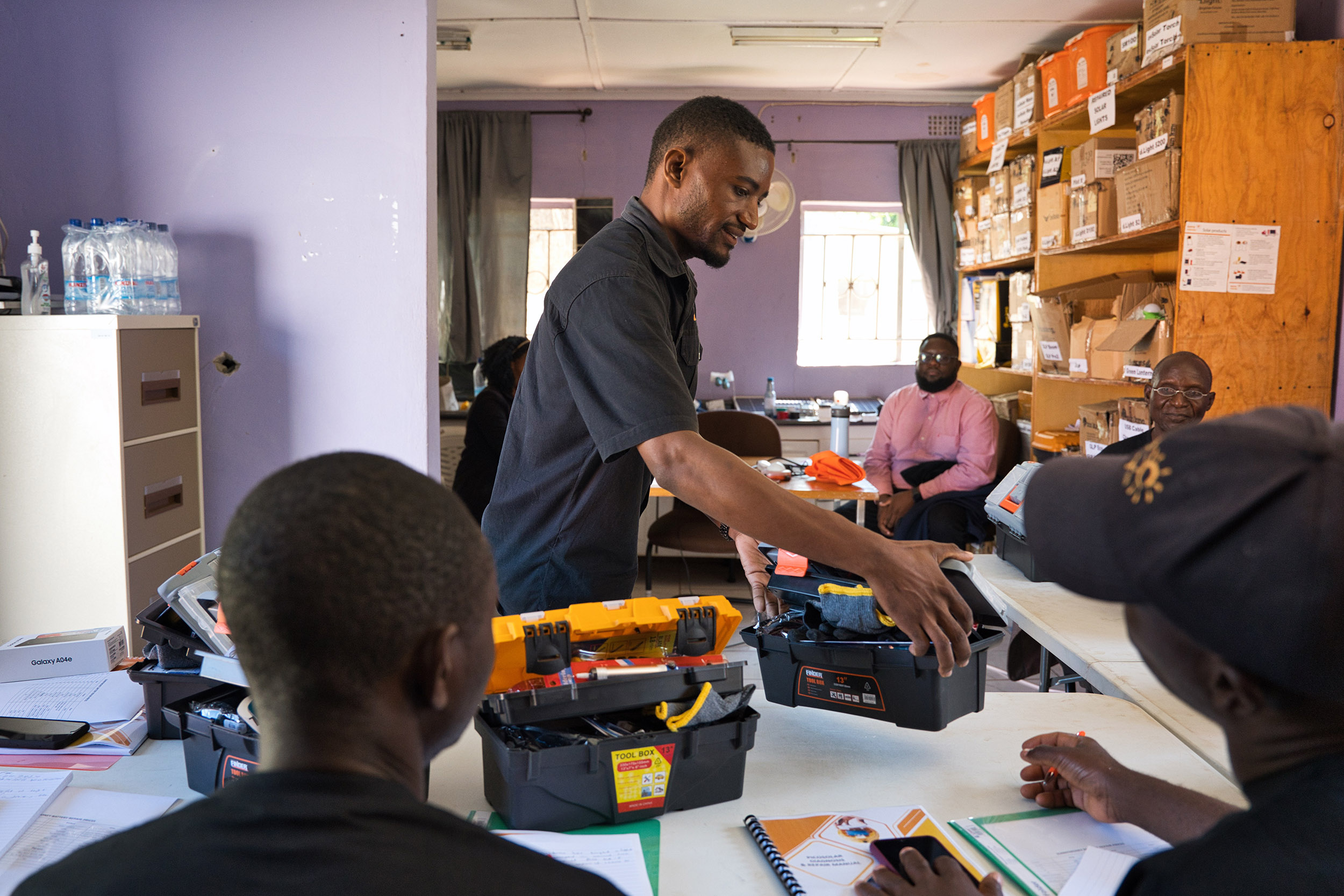
Repair Technician Silas Lyowa facilitating at the solar repair training for Solar Entrepreneurs in Lusaka, Zambia. Photo: SolarAid/Jason Mulikita
The impact of this training was evident in the enthusiasm and commitment of the participants. Through collaborative problem-solving exercises and interactive demonstrations, the entrepreneurs gained confidence in their newfound abilities. The ripple effect of these skills will be felt far beyond the walls of the training room.
Master Banda, one of the trainees, expressed his appreciation for the opportunity: “The training was beyond my expectations. I not only learned how to repair the solar lights that I sell but also other products like solar fans and hair clippers. Now, I feel confident in fixing any electrical product, which opens up more opportunities for me.”
Another participant, Vincent Ngwira, highlighted the sustainability angle: “Repairing solar lights is important because it extends the life of these products and reduces electronic waste. Instead of letting broken lights pile up, we can fix them and give them new life.”
Vincent also reflected on the practical benefits for his community: “Now I can confidently tell customers to bring their broken lights to me instead of sending them all the way to Lusaka. I can work as a SunnyMoney technician right here, which is more convenient for everyone.”
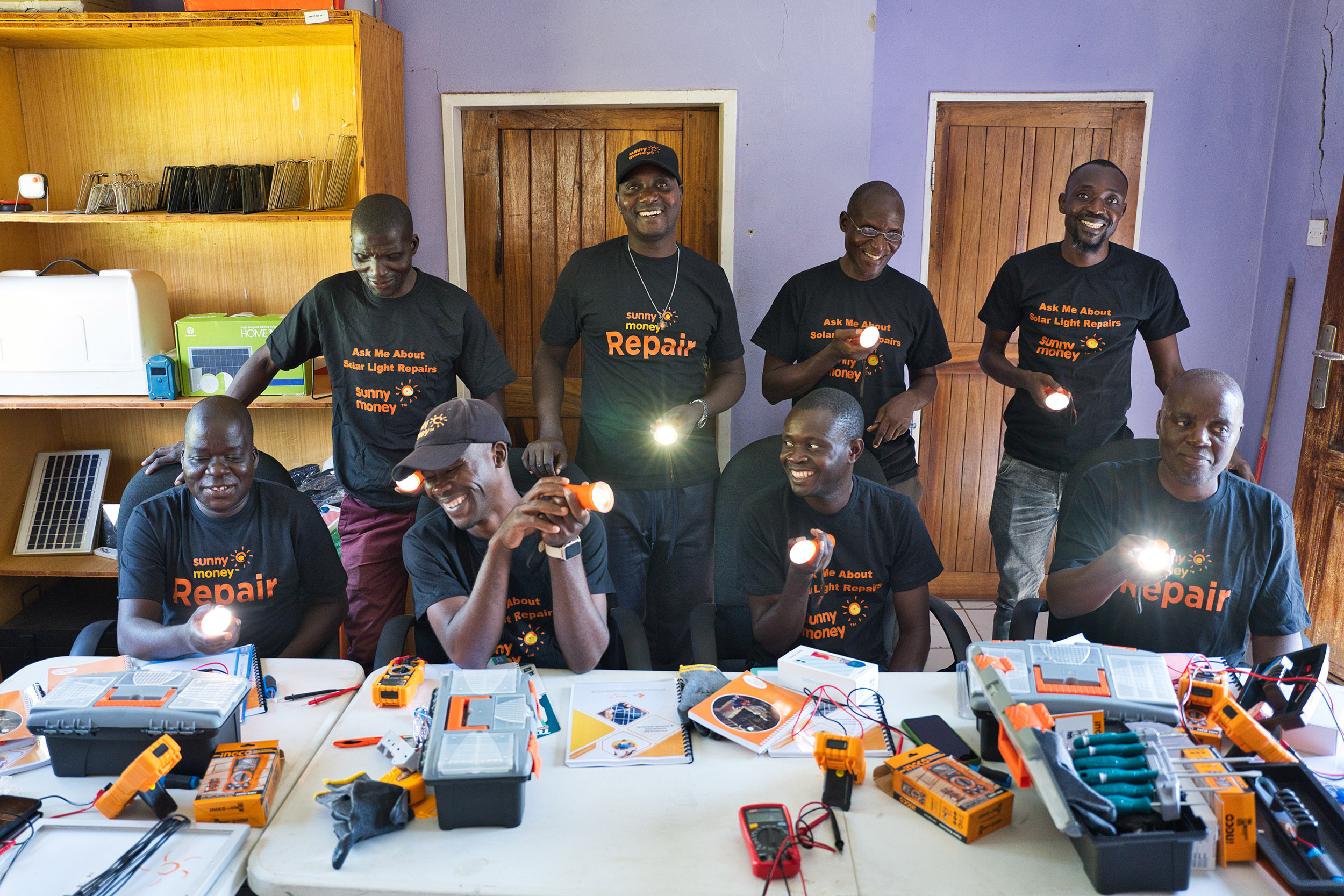
Solar entrepreneurs now also trained as technicians pose for a photo after they each successfully repaired a solar light. Bottom left to right – Master Banda, Mengenzi N’cube, Chrispin Samapaze, Moses Mate), Top left to right- (Simalalo Sialwiindi, Fr. Vincnet Ngwira, Reuben Musunga, Smart Mtonga. Photo: SolarAid/ Jason Mulikita
Armed with these valuable skills, the entrepreneurs are now returning to their communities as agents of change. By offering both essential solar lighting solutions and repair services, they will help foster a culture of sustainability, resourcefulness, and self-reliance.
As SolarAid continues to champion the cause of sustainable energy access, initiatives like these demonstrate the crucial role grassroots efforts play in driving long-lasting, positive change. By equipping local entrepreneurs with the tools to repair and maintain solar lights, we are collectively building a brighter, more sustainable future—one light at a time.
